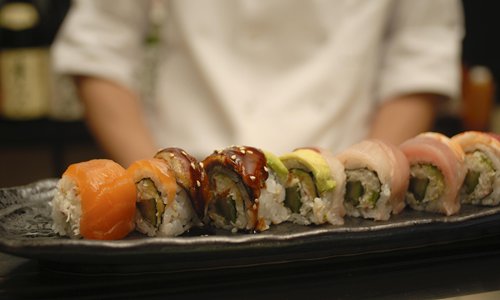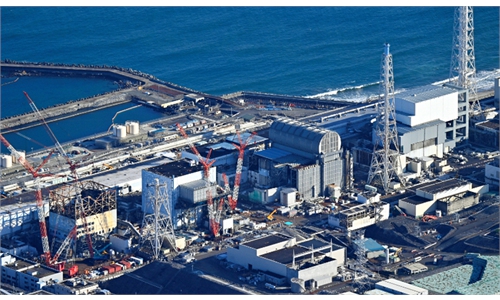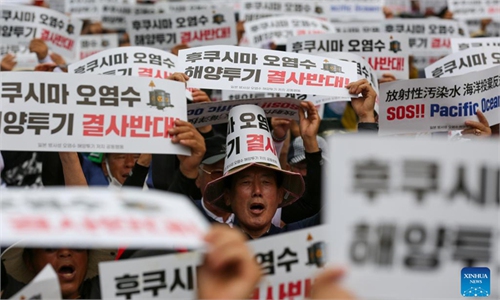ARTS / CULTURE & LEISURE
Many Japanese restaurants in China stop importing seafood from Japan, see fewer customers amid safety concerns

Sushi Photo: IC
As the international community grows increasingly concerned about the Tokyo Electric Power Company's plan to dump radioactive water into the Pacific, a lot of Japanese restaurants in China have already felt a chill from customers who want to avoid seafood from Japan.
"Our customer traffic has obviously decreased a lot and business is also on the decline," a manager of a well-known Japanese restaurant in Beijing's Chaoyang district told the Global Times on Tuesday. Much of the food served in this restaurant, located in the upscale Liangmaqiao area, used to be imported from Japan, but since they noticed news reports about the dumping plans in early June, they decided to give up on importing fresh seafood from Japan.
"Now the world will be affected by Japan's irresponsible behavior. We need to change our procurement channels, but we are not quite sure yet what country we will import from. What is certain is that we will not be importing from Japan," the restaurant manager stated.
Another Japanese restaurant manager in Beijing told the Global Times that since Japan has continued to proceed with the dumping plan, they have already stopped purchasing from Japan and shifted to procuring from Chinese fishing ports.
They noted that the domestic fresh seafood supply chain is quite stable and of good quality.
She said Chinese domestic seafood prices have been on the rise, which she believes is partially because more restaurants are relying on the domestic seafood supply.
An employee at a Japanese restaurant on Huaihai Road in Shanghai said they are still purchasing fresh seafood imported from Japan every two days, including sea urchin and abalone, as they trust the strict quality control measures of China's customs.
"If any problems were found, the products would be denied entry into the country," he said.
He admits that "given the news of the radioactive water dumping plan, many customers are concerned about Japanese food."
A report released by the Tokyo Electric Power Company in early June admitted that fish caught in the waters near the Fukushima nuclear power plant in May contained the radioactive substance "cesium" in the amount of 18,000 becquerels per kilogram, more than 180 times the standard set by Japanese law.
The news of Japan's decision to dump nuclear-contaminated water from Fukushima into the ocean has also sparked widespread concern and much debate among netizens.
"What should we do? Can we still eat seafood? I can't imagine a day without seafood," a netizen posted on Sina Weibo.
"After I saw the news, whenever I go to Japanese restaurants, the first doubt and concern I have is whether the seafood is from the sea affected by the discharge of radioactive water … Nuclear contamination of the marine ecosystem cannot be ruled out," Fan Xiaoling, a graduate student of environmental studies in Shanghai, told the Global Times on Wednesday.
"I won't go to Japanese restaurants, and I won't eat seafood or sashimi either anymore," he noted.
Japan's dumping plan have caused widespread concern around the world, especially for its Asian neighbors including China and South Korea. Associations and industry insiders from China's Hong Kong, Macao, Taiwan and the mainland have recently voiced their strong opposition toward Japan's irresponsible plan, and some have called for a ban on Japanese food imports.
"Before Japan officially started dumping nuclear wastewater, there were already fish in the Fukushima area that contained a level of cesium that exceeded the standard by 180 times, indicating that Japan's purification equipment is not adequate enough to ensure that the seawater does not become contaminated, and the Japanese government's so-called 'effective purification of nuclear wastewater' is absurd," said Chen Yingxin, a member of the Legislator Council of the Hong Kong Federation of Trade Unions.


